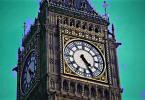In one of the most exciting Commons debates for some months, MPs have lined up to denounce the extradition of three British bankers to the USA.
Criticism has focused on the 2003 extradition treaty between the USA and the UK, whereby warrants issued by American authorities were no longer required to produce evidence to a British judge to extradite suspects.
The Speaker had ruled that many cases were sub-judice, which frustrated the efforts of several MPs to discuss constituency cases.
MP after MP complained about the unfairness of the current position. The debate was secured by LimDem Home Affairs spokesman Nick Clegg. The issue of due process of law has been a recurrent theme from the LibDems. At PMQ today Ming Campbell harried Tony Blair over the extradition of the bankers. The PM was forced on the offensive, and seemed to imply that bail would be forthcoming for the accused.
The facts are that although the crimes were committed in the UK, neither the authorities or the victim of the alleged fraud, NatWest Bank, wanted to press charges. It was only when US authorities investigating the Enron case asked for them to be deported to face charges in Texas that the men were cleared for extradition.
Many Tory MPs wanted to know why we were honouring a treaty the US has yet to ratify. There is pressure on American legislators from Irish Republican lobbyists not to ratify. Many MPs were still bitter that the US had consistently hidden IRA murderers from British justice.
There were a string of speeches from heavy-weight MPs, many of them barristers and QCs.
Former Tory leader and Home Secretary, Michael Howard, was followed by John Redwood and Patrick Cormack. Cormack was "full of apprehension" about the current uneven situation.
Labour MP David Winnick also opposed the extraditions. There were multiple mentions of the injustices of the USA under this administration, much of it from unexpected quarters. Douglas Hogg QC described himself as a "long friend of the US" but went on to express is disquiet at their current "attitudes towards legal process" and branded their prisons "an affront to civilisation."
There was a typically barnstorming contribution from Boris Johnson, incandescent at this betrayal of the rights of British subjects. Words exploded from the blond bombshell, charm and indignation oozing in equal measure. He was warmly praised at the start of his remarks by Labour MP Sadiq Khan, who said "He has become a friend - with a small f."
Riding this wave of mutual appreciation, Johnson went on to make much of the injustices of the current regime, and urged the Solicitor General (for the government) to examine the imbalance in the numbers - 45 go from the UK to the US, only three or four in the other direction.
Johnson is probably the most exciting speaker in the House, his huge rushes of energy and invective punctuated with Godot-esque pauses of immense length. He blustered and through on this occasion, rousing his fellow MPs and almost, but not quite, preparing them for the next speech.
A leonine George Galloway rose from the opposition benches, far above the LibDems. Tanned and newly-bearded, he looked like a young Yasser Arafat. Boy, did he let them have it. In ten minutes of focused rage, the Bethnal Green & Bow MP ripped apart any and every shred of cover the government front bench had.
Perhaps the most eye-popping moment was the intervention of Dominic Grieve, the Shadow Attorney General. He backed up Galloway's point about the Labour party complaining about the use of PR to bolster the case for the bankers in the media. Grieve read out the briefing note from the Law Officers Department on how to spin the story as Tories supporting rich bankers.
Galloway and Grieve - the new Morcambe and Wise.
The living personification of moral outrage grumbled: "The class warrior clothes no longer fit the members opposite." The Solicitor General was accused of pejorative language, referring to the accused constantly as the Enron Three.
As news flashed up on the screen that a banker's body had been found in a London park, Galloway came - oratorically that is: "extraordinary rendition, Abu Ghraib, Guantanamo Bay, orange jumpsuits, cages in the Tropics, people being flown round the world to be tortured by the United States."
He sat down to total silence.
skip to main |
skip to sidebar

political comment and analysis from Westminster.

Blog Archive
-
▼
2006
(168)
-
▼
July
(27)
- PM supports Israel, no matter what.
- Westminster is a village
- Oaten faces reality
- Trouble with broadband
- Commons Cafe
- August - our promise to you.
- MPs to get a vote on Trident renewal
- PMQ - end-of-term panto
- MPs Feel The Heat
- Could Labour declare bankruptcy?
- Yo Blair
- Blair speaks out
- Gremlins - no, not the film
- Cameron Delays Leaving EPP!!
- MP acts like Fascist Wanker
- Socialist MP will challenge for Labour leadership
- Blair on form at PMQ, but LibDems making the good ...
- Galloway and a cast of thousands slam the governme...
- cash-for-peerages - more sleaze!
- winding down
- Thanks for the questions
- 7th July - politicsjunkie reflects
- Prescott Hits Back - transcript
- Prescott bullish over casino-gate
- Connection Problems
- Rights of Scots MPs raised at PMQ
- The beginning of the end of the United Kingdom
-
▼
July
(27)